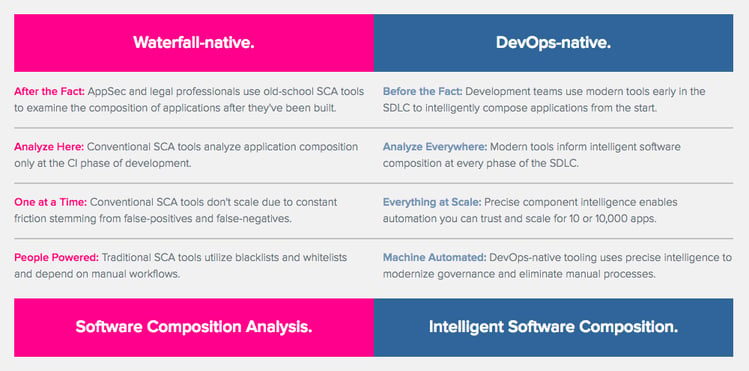
How DevOps killed the market for software composition analysis
The niche market for software composition analysis (SCA) tools has died. The culprit: DevOps.
In today's world, developers are king. Innovation is the throne upon which they sit. Anything seen as an inhibitor to DevOps agility is the enemy, and therefore, must be terminated.
SCA tools are waterfall-native by design. Thus, it is impossible to integrate SCA security controls into DevOps-native work flows in an automated and scalable way.Using traditional SCA tools to analyze the composition of applications being produced in a DevOps-style workflow is like driving a race car with one foot on the gas, and one foot on the brake, at the same time. Developers simply will not put up with that type of friction.
In order to continuously deliver great software with great security, application security architects should find ways to partner with and empower developers. In his September 2016 paper, DevSecOps: How to Seamlessly Integrate Security into DevOps, Neil MacDonald from Gartner states that organizations "must integrate security at multiple points into DevOps workflows in a collaborative way that is largely transparent to developers, and preserves the teamwork, agility and speed of DevOps and agile development environments, delivering DevSecOps."
As more and more organizations like Liberty Mutual, Tyro, and Qualys make the transformational journey to DevOps they are embracing tools and processes that enable them to intelligently compose applications early, everywhere, and at scale across every phase of the application delivery pipeline.
To achieve this level of performance, DevOps leaders are saying:
-
NO to waterfall-native SCA tools, and
-
YES to DevOps-native tools which enable intelligent software composition at every phase of the game.


Matt is a proven executive and entrepreneur with over 20 years experience developing high-growth software companies, at Sonatype, he leads corporate marketing, strategic partnering, and demand generation initiatives.
Explore All Posts by Matt Howard

